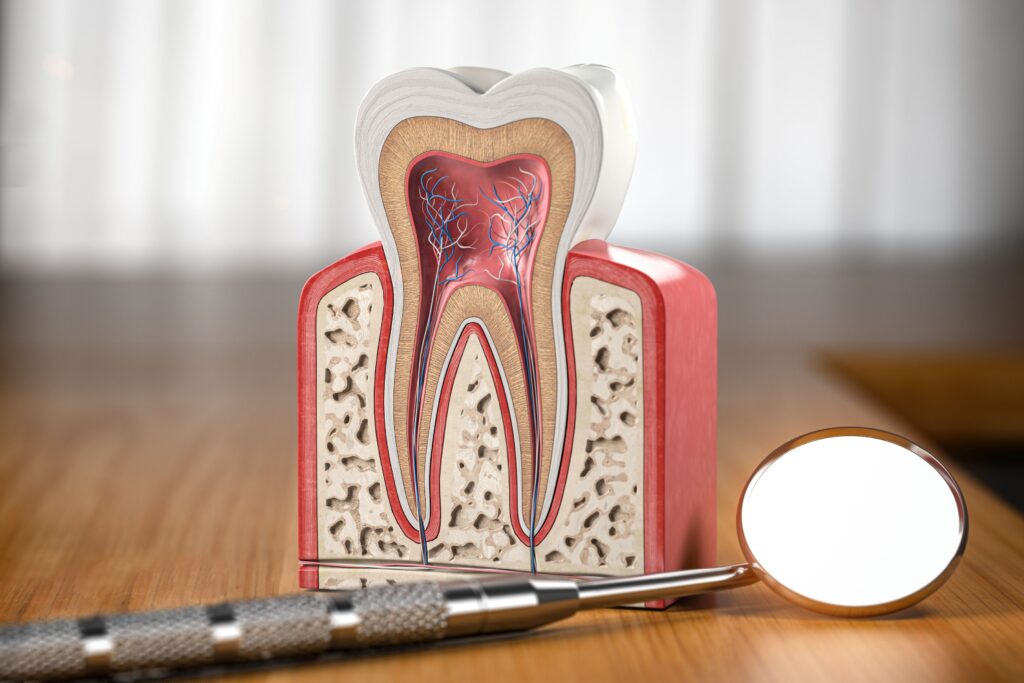
Do you have a throbbing tooth that’s severely decayed or broken? If so, there’s a good chance that germs in your mouth penetrated the pulp beneath your enamel and caused an infection. A root canal procedure is the standard treatment to clear out the injured materials then disinfect and seal it. Once that’s complete, you’ll likely be fitted with a lifelike dental crown to restore your troubled tooth’s appearance and functionality.
However, you might wonder if you should keep your root canal appointment if the pain miraculously goes away. While it’s easy to assume this means the problem has taken care of itself, that’s typically not true. Continue reading to learn why you shouldn’t skip your scheduled visit even if your toothache disappears!
What Causes Toothaches?
There are several potential reasons that your pearly white might be hurting, and some are more serious than others. For instance, you might have developed sensitivity from an overly acidic diet or aggressive overbrushing that can thin your enamel. The treatment for this could be as simple as eating more wholesome foods or switching to a soft-bristled toothbrush and non-abrasive toothpaste.
That said, it’s incredibly common for bacteria to penetrate a chipped, cracked, or damaged tooth and cause a painful infection.
Why Did My Tooth Suddenly Stop Hurting?
It’s natural to feel relieved if the throbbing in your mouth suddenly dissipates. Unfortunately, dental problems don’t resolve themselves and tend to get progressively worse, so the sudden change in your symptoms might not be a good sign. In fact, it likely means that your tooth’s condition is degrading.
The pain you’ve been feeling is due to the infection in the tender pulp beneath the enamel. If the throbbing subsides, it could be because the toxic materials have done enough damage to the nerves that they have died and can no longer send pain signals to your brain.
Another possibility is that you’ve been suffering from a long-term chronic infection that your body has accommodated so long that it’s adjusted to the pain threshold. Either way, your dentist can take an X-ray to confirm what’s happening beneath the surface.
Do I Still Need a Root Canal if My Tooth Stops Hurting?
Unfortunately, if your chomper is so damaged that it no longer senses pain, it’s probably already dead inside. No treatment can repair your nerves, but a root canal can stop the infection from spreading and protect your tooth so you can continue using it to eat and speak normally.
If your condition has worsened and the decay is at risk of spreading to neighboring teeth or your jawbone, your dentist might recommend extracting and replacing it to safeguard your smile instead.
Regardless of your current condition, your provider can accurately assess the extent of the damage behind your toothache. Then, they’ll provide an appropriate solution to alleviate your pain and preserve your grin!
About the Author
Dr. Paul Scott is a licensed endodontist who has performed over 35,000 root canals throughout his dental career. He initially graduated from the Northwestern University Dental School in Chicago and then received his Certification in Endodontics there. Now, he offers many high-quality services to help you build and maintain a happy, healthy smile. He combines a caring and compassionate approach with state-of-the-art technology to individualize treatment plans to meet your unique needs. If you’re worried about a toothache, you can request an appointment on the website or call (321) 722-0550.
